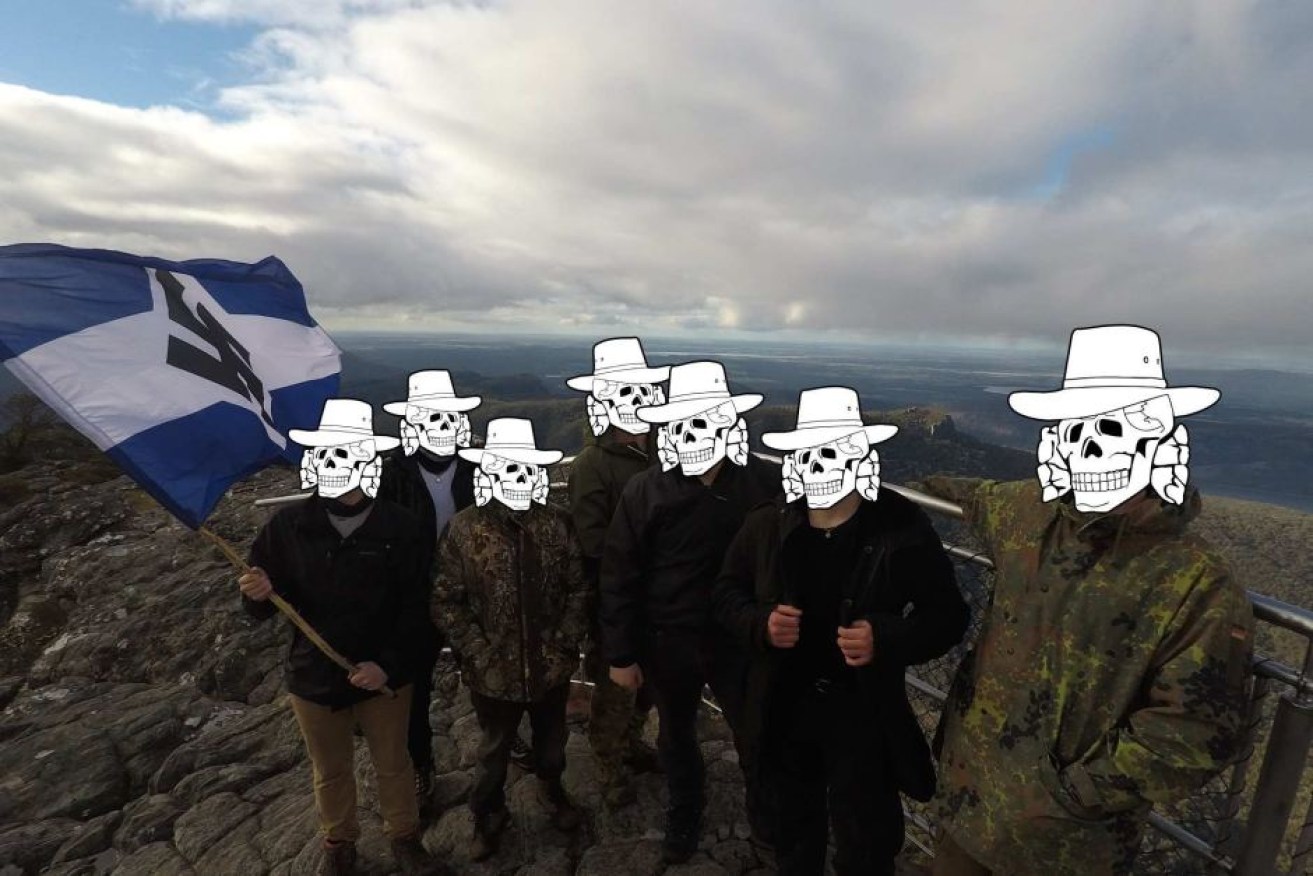Facebook, Twitter urged to crack down on hate speech in Australian feeds

Antipodean Resistance members, who hide their faces with a skull icon, put up homophobic posters and publicised them on Twitter.
They are the US social media giants with a finger on the pulse of what matters to most Australians, but Facebook and Twitter are being urged to sharpen up their response to hate speech encroaching on people’s newsfeeds because it is not meeting community standards.
That’s according to Matthew Allen from Deakin University, who specialises in internet studies.
Professor Allen said while social media heavyweights have met community expectations in parts of America, they might be falling short in places like Australia.
“We have a strong presumption of personal liberty, but a stronger presumption than America of the liberty we need to have to be protected from inappropriate and hateful speech,” he said.
“And I don’t think those companies are responding to all of the local conditions in which they operate as well as they perhaps should.”
The criticisms have emerged after an Australian Neo-Nazi group, Antipodean Resistance, was found to be using Twitter as a propaganda platform, partly with the aim of swaying the same-sex marriage postal survey.

A poster linking same-sex marriage to paedophilia has been placed in various locations around Melbourne.
The group has been putting up homophobic posters around Melbourne linking same-sex marriage to paedophilia, and then posting pictures of the vandalism to Twitter.
It has also claimed responsibility for a range of anti-Semitic posters and swastika stickers, publicised in the same way, and sought attention for its “radicalisation camps”.
The activities of non-jihadist extremist groups have come to the attention of Australia’s domestic spy agency, ASIO.
“Members of these groups are diverse and have differing agendas, including extreme right-wing and extreme left-wing ideologies,” ASIO’s last annual report said.
“A few small subsets of these groups are willing to use violence to further their own interests,” it said.
“While their activities are concerning, they remain a small part of their broader movements and their activities are presently unlikely to lead to wide-scale violence or pose a threat to social cohesion.”
Social media companies need to act faster: expert
When it comes to hate speech, Professor Allen said that while many large social media companies don’t encourage controversy, they may tolerate it to a degree.
“The challenge then is how to deal with the more egregious forms of behaviour, where it moves from speech to a form of vilification or harassment,” he said.
He has called on social media companies to be more proactive in their response.
“If an issue emerges, they must act on it. They can’t act before an issue emerges but they shouldn’t simply say, ‘We have to wait until a certain number of people report a post before we do anything’,” he said.

Anti-Semitic material has been seen in various locations in Melbourne, Sydney and Brisbane.
“Whilst they proclaim themselves as global companies, there is actually a natural local standard and they ought to be more proactive.”
When contacted, a spokesman for Twitter said it did not comment on individual accounts.
“Twitter does not proactively monitor content, but will review content based on reports from our community,” the spokesman said.
“As per our hateful conduct policy, we do not tolerate behaviour that harasses, intimidates, or uses fear to silence another person’s voice. If you see something on Twitter that violates these rules, please report it to us.”
A Facebook spokeswoman pointed to the platform’s community standards.
“People can use Facebook to challenge ideas, institutions, and practices, but we do not allow hate speech and will remove it when reported to us,” she sad.
“Our policies against hate speech and hate organisations are longstanding and we prohibit content that directly attacks people based on protected characteristics like race and ethnicity.”
-ABC








